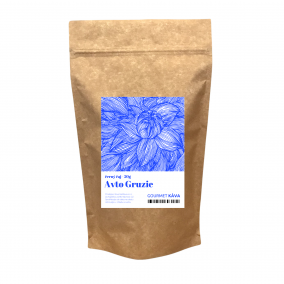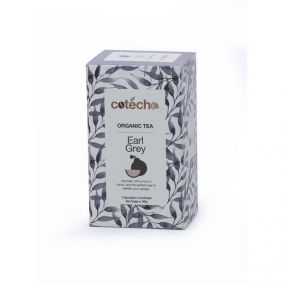It is no longer just a drink of the upper classes, but its taste, characteristic aroma and many beneficial effects can now be enjoyed by everyone.
It is often compared to coffee, the initial impulse perhaps being the similarity in the colour of the resulting drink, but coffee and black tea are also linked by their caffeine content. And this stimulant is behind many of the effects we can expect from black tea.
Unlike coffee, however, black tea does not have such pronounced and rapid stimulating effects. The absorption of caffeine is influenced by the presence of large amounts of antioxidants, which make the level of caffeine in the body rise gradually.
The phase of wakefulness and concentration therefore lasts a little longer and eliminates both the dramatic onset and very rapid decline, which many people will appreciate.
An army of highly armed antioxidants is capable of winning many a battle for our health:
- Regularly drinking black tea reduces the risk of developing diabetes, lowers cholesterol and stabilizes blood sugar levels.
- Black tea has a beneficial effect on the cardiovascular system, increasing protection against heart attack and stroke, lowering blood pressure and generally benefiting our heart.
- The polyphenols contained in black tea promote the growth of beneficial bacteria in the intestines, and in turn prevent the multiplication of harmful bacteria.
- Thanks to its caffeine and amino acid L-theanine content, this drink promotes brain activity and improves cognitive function (especially memory).
- To a lesser extent, drinking black tea can also help prevent osteoporosis.
- Recently, there has also been talk that black tea may reduce the risk of developing Parkinson's disease.
Like any other caffeinated beverage, black tea has its drawbacks. As long as you drink no more than four cups a day, you have nothing to worry about. But more than that could cause a range of side effects, from headaches to irregular heart rhythms.
Anyone who regularly takes any prescription medication should take into account the fact that black tea introduces caffeine into the body, which can interact with a wide range of drugs, i.e. reducing or increasing their effects. In this respect, it therefore always makes sense to consult a doctor about the risk of adverse interactions.
For a healthy person, however, black tea is a drink for every occasion. It will drive fatigue into a corner, promote concentration and offer a taste and aroma unmatched by any other drink.
Portioned Black Tea Darjeeling Finest 40g from Himalayas
Portioned Black Tea Darjeeling Finest 40g from Himalayas
Tea bags of organic black tea Earl Grey with bergamot essential oil.
Tea bags of organic black tea Earl Grey with bergamot essential oil.
A selection of Ceylon's finest organic teas and natural herbal infusions.
A selection of Ceylon's finest organic teas and natural herbal infusions.
Tea bags of organic black tea English Breakfast.
Tea bags of organic black tea English Breakfast.
Avto is a small producer of a typical black tea from Georgia with a strong and thick taste. Honey flavours and floral aromas predominate.
Avto is a small producer of a typical black tea from Georgia with a strong and thick taste. Honey flavours and floral aromas predominate.
Darjeeling Finest Black Tea Simon Lévelt BIO 40g
Tea Cotecho BIO Earl Grey 30 g
Tea Cotecho gift set 9x10 bags
Tea Cotecho BIO English Breakfast 30 g
Tea black Car Georgia 50g
Sources:
https://pubmed.ncbi.nlm.nih.gov/29592809/




























































































